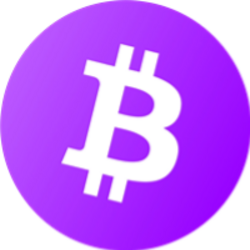
South Korea’s cryptocurrency outflows reached a staggering 56.8 trillion won (approximately $40.6 billion USD) in the first quarter of 2025, with stablecoins making up nearly 50% of those outbound transfers, according to newly released data from the Financial Supervisory Service (FSS).
The findings were disclosed by Democratic Party lawmaker Min Byung-duk, who revealed the details during a recent parliamentary briefing. The data was collected from five major domestic cryptocurrency exchanges: Upbit, Bithumb, Coinone, Korbit, and Gopax.
Stablecoins Dominate South Korean Crypto Transfers Abroad
Among the massive crypto outflows recorded between January and March, stablecoins like Tether (USDT) and USD Coin (USDC) accounted for 26.87 trillion won or 47.3% of the total amount sent overseas.
Stablecoins are a preferred vehicle for transferring funds internationally due to their low volatility and high liquidity. They are also commonly used for purchasing altcoins and other digital assets on global exchanges such as Binance and Bybit, which offer a broader range of trading options than their Korean counterparts.
However, the report noted a decline in stablecoin outflows in March, aligning with a broader slowdown in crypto market activity and a temporary drop in user movement toward offshore platforms.
South Korea’s Crypto Adoption Continues to Soar
The outflow data highlights a deeper trend in South Korea’s surging interest in digital assets. As of February 2025, approximately 16.29 million people around 32% of the population held crypto accounts, according to figures submitted to Rep. Cha Gyu-geun of the Rebuilding Korea Party.
The data, sourced from the same five major exchanges, reveals a steady increase in adoption throughout early 2024 and into this year, cementing South Korea’s position as one of the most active crypto markets in the world.
Public Officials Join the Crypto Movement
What’s more surprising is the growing number of public officials investing in cryptocurrencies. Of the 2,047 officials who filed asset declarations this year, 411 individuals nearly 1 in 5 reported holdings in crypto-related assets.
This group includes high-ranking officials such as:
- The Secretary General of the Labor-Management Development Foundation
- The President of the Korean National Police University
- The Vice President of the Korea Water Resources Corporation
These disclosures mark a shift in the perception of crypto in South Korea from speculative assets to recognized investment vehicles embraced even at institutional levels.
Policy Implications and Market Outlook
The rising volume of stablecoin outflows raises important regulatory questions. With Korean users increasingly turning to overseas exchanges for access to broader markets and higher yields, local platforms and regulators may face pressure to liberalize listings, enhance user experience, and improve trading infrastructure to retain domestic capital.
The government’s stance toward digital assets has been evolving. South Korean presidential hopeful Lee Jae-myung has already pledged support for crypto ETFs, signaling a possible shift toward more open crypto regulation.
South Korea’s Q1 crypto outflows underscore both the growing maturity of digital asset adoption in the country and the challenges local exchanges face in retaining user activity. With nearly half of outflows comprised of stablecoins, and crypto ownership expanding even among public officials, the message is clear: crypto is becoming a central pillar of South Korea’s financial future.




































































































































































































































































































































































































































































































































































































































































































































































































































































































































































































































